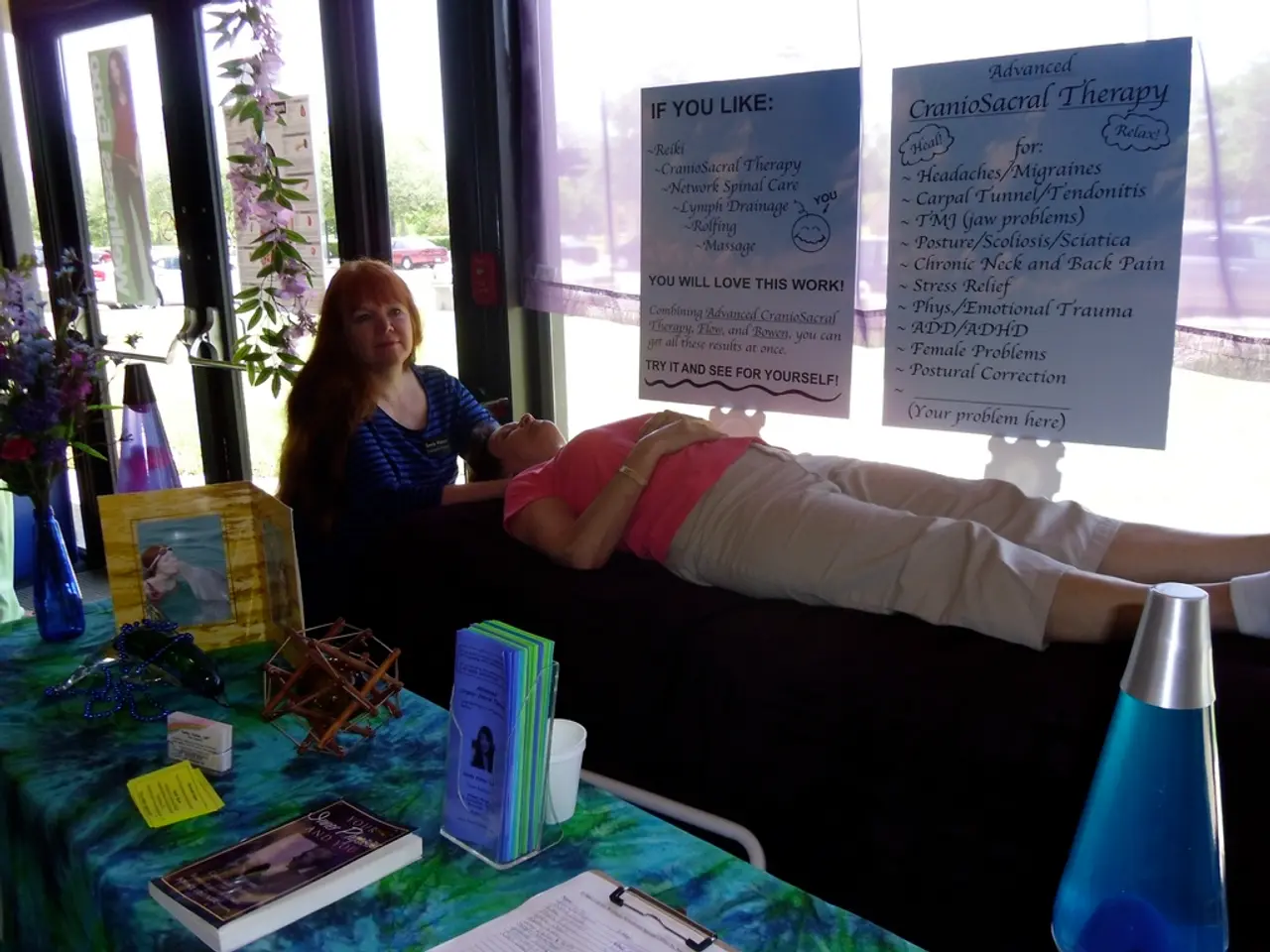Strategies for Supporting an Individual Suffering from Dementia: Advice and Resources for Assistance
## Effective Strategies for Managing Caregiver Stress in Dementia Care
Caring for someone with dementia can be a demanding task, both emotionally and physically. To ensure the well-being of both the caregiver and the person with dementia, it is essential to manage stress effectively. Here are some evidence-based strategies to help caregivers maintain a balanced approach:
### Self-Care and Emotional Well-being
Recognising the signs of caregiver burnout, such as persistent fatigue, irritability, changes in sleep patterns, social isolation, and physical health problems, is crucial. Addressing these issues early on is vital for maintaining your own health and providing the best possible care.
To combat burnout, prioritise your physical health by scheduling regular medical check-ups, staying on top of your medications, and seeking prompt attention for any health concerns. Practising relaxation techniques, such as slow, intentional breathing exercises, can help calm your nervous system in stressful moments. Engaging in regular physical exercise, even short walks or stretching, can boost your mood and energy levels.
Planning ahead is another effective strategy for managing stress. Develop daily or weekly routines for both yourself and your loved one to reduce chaos and provide a sense of accomplishment. Taking breaks when safe can also help prevent escalation of stressful situations.
### Building a Support Network
Accepting help from family, friends, or neighbours can help alleviate the burden of caregiving. Create a list of specific tasks others can assist with, such as grocery shopping, meal preparation, or respite care, and accept offers of help when they are made.
Joining support groups, either in-person or online, can provide an opportunity to share experiences, gain practical advice, and reduce feelings of isolation. Don't hesitate to reach out for help—whether for practical tasks or emotional support—when you feel overwhelmed.
### Practical Caregiving Strategies
Communication and connection are key to providing effective care for someone with dementia. Engage your loved one in activities they find enjoyable and meaningful, such as gentle exercise, gardening, crafts, puzzles, or listening to music, which can soothe and provide a sense of purpose.
Simplifying activities to match your loved one's current abilities can help reduce frustration and maintain a positive experience. Offer tactile crafts, art therapy, or comforting items like soft blankets or cuddly toys to provide sensory stimulation and reassurance.
Being attentive to basic needs, such as offering food, drink, and checking for toileting needs, can help prevent agitation. Creating a calm environment, either by moving to a quiet, familiar space or finding the calmest available area, can also help soothe your loved one during moments of distress.
Physical comfort, such as holding their hand, gentle massages, or sitting close, can be soothing and reassuring during these moments.
In summary, implementing these strategies can help you sustain your energy, maintain emotional health, and provide compassionate, effective care for your loved one with dementia. For further information, consider seeking support from mental health counselors, joining support groups, learning more about caregiver burnout and depression, and utilising services such as delivery services for groceries, medication, and other essential household items.
- Recognizing caregiver burnout signs like fatigue, irritability, and sleep pattern changes is vital for maintaining your health and providing better care.
- Prioritize physical health by scheduling regular medical check-ups, staying on top of medications, and seeking immediate care for health concerns.
- Relaxation techniques, such as slow breathing exercises, can help calm your nervous system during stressful moments.
- Engage in regular physical exercise for improved mood and energy levels.
- Planning routines for both you and the person with dementia can help reduce chaos and provide a sense of accomplishment.
- Taking breaks when safe can prevent escalation of stressful situations.
- Accept help from family, friends, or neighbors with specific tasks like grocery shopping, meal preparation, or respite care.
- Joining support groups, either in-person or online, can provide opportunities to share experiences and reduce feelings of isolation.
- Communication and connection are key to providing effective care for someone with dementia.
- Engage your loved one in enjoyable, meaningful activities, such as exercise, gardening, crafts, music, or art therapy.
- Simplify activities to match their current abilities to reduce frustration and maintain a positive experience.
- Offer tactile crafts, art therapy, or comforting items like soft blankets or cuddly toys for sensory stimulation and reassurance.
- Be attentive to basic needs like food, drink, and toileting needs to prevent agitation.
- Creating a calm environment can help soothe your loved one during moments of distress.
- Physical comfort, like holding their hand, gentle massages, or sitting close, can be soothing and reassuring during these moments.
- For chronic diseases like COPD, type 2 diabetes, chronic kidney disease, and cardiovascular health, always consult healthcare professionals for advice and therapies.
- For respiratory conditions, digestive health, eye health, hearing, fitness, and exercise, sexual health, mental health, men's health, skin care, seek expert advice for proper care and management.
- In managing multiple sclerosis, migraines, and autoimmune disorders, always consult healthcare professionals for therapies and treatments.
- For aging, womens health, parenting, and weight management, consider seeking support from healthcare professionals, wellness coaches, or support groups.
- In cases of breast cancer, skin conditions, and neurological disorders like Alzheimer's disease, seek medical attention and support from healthcare professionals and support groups.
- Utilise services such as delivery services for groceries, medication, and essential household items for added convenience and stress-relief.




